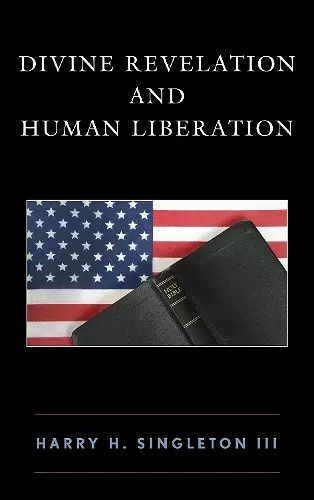Divine Revelation and Human Liberation
Format:Paperback
Publisher:Rowman & Littlefield
Published:7th Jul '20
Should be back in stock very soon
This paperback is available in another edition too:
- Hardback£85.00(9781978702974)

Harry H. Singleton is concerned in this work with the disparate ways blacks and whites have experienced American history and subsequently the way they have fashioned God’s communication to humans, formerly referred to as revelation. This book makes the case that while white Christian leaders have rooted God’s revelation either in an inherently inferior black humanity or a Christian faith void of black suffering, black theologians have rooted that same revelation in the plight of oppressed peoples in general and black people in particular, i.e., that God’s essence is found in the struggle for human liberation. With clarity and passion, Professor Singleton draws on the treatments of revelation of the most celebrated white theologians to demonstrate that the Christian theological enterprise has by intent and effect linked God’s revelation with black inferiority. Black theologians, on the other hand, have countered seeking a more liberating view of black humanity by making the case that the God of the Bible ultimately intervenes in contexts of human oppression not for their perpetuation but rather for their destruction. In this sense, Singleton pushes the reader to the conclusion that although the treatments of revelation between white and black theologians have been as different as their lived histories, the object of revelation has been the same – the humanity of black people! Thus, Singleton puts forth the bold argument that the racial struggle in America has not only been an historical struggle for determining the humanity of black people but a theological struggle for determining the humanity of black people as well. But far from remaining objective, Singleton takes the liberating path for black humanity and presses his way through the pages of this work seeking a new paradigm for revelation that no longer places God at the intersection of the white-black encounter as a condoner of racism or as a disinterested observer in the racial struggle but rather as an eternal light whose very nature is seen in the continuing quest for human liberation.
Professor Singleton’s work on “revelation” fills a serious void in the literature of black theology and black religion. Making Karl Barth’s and Paul Tillich’s views respectively of “revelation” his point of departure, Singleton methodologically challenges us to construct from primary sources of the black experience a liberating theology of “revelation.” Extracting hermeneutical insights from the Bible and slave religion, he deconstructs the way in which the history of slavery, racism, classism, and sexism has distorted the Bible’s Christocentric liberating portrait of “revelation.” He calls for a liberating view of “revelation” that transcends the oppressive history that whites produced in the name of Christianity. In short, Singleton makes it clear that whites have used the notion of “revelation” to exploit and oppress.
Singleton’s book brings black and white Christian reader’s face-to-face with the tragic way that the notion of revelation has been appropriated to exploit and oppress the marginalized peoples of the world. Readers will find in the book a need to rethink “revelation” which is one of the most powerful biblical terms for Christians.
-- Riggins R. Earl Jr., The Interdenominational Theological CenterSingleton presents a concise theological history of the whitewashing of Christian doctrines. With the argument that all theology is contextual, Singleton reveals how the context of U.S. racism and slavery shaped key Christian ideals. As a response, Singleton focuses on the power of revelation as the starting point for black theology. This clear and grounded theological exposition is a needed addition to systematic theology discussions.
-- Monica A. Coleman, Claremont School of TheologyIn Divine Revelation and Human Liberation, Singleton brings his considerable intellectual heft and sharp analysis to a singular question, “What does God’s revelation have to do with the oppressed?” His incisive critique of Karl Barth moves from revelation’s structure to its content and breathes new life into Black Liberation Theology. Ultimately, he ably wrests revelation from its capture by white supremacy and shows it as liberation—Good News for the disinherited! Singleton has written a tour de force. This book is indispensable for both scholars and non-scholars alike—anyone interested in the next horizon in theology’s struggle to reveal God’s justice to the world.
-- Herbert R. Marbury, Vanderbilt UniversityLike a scholarly physician, Harry Singleton deploys the scapel of theoretical critique to insert incisions into pathological notions of "revelation". And like a good doctor, he provides a salutary remedy recuperating the medicinal value of "revelation" for human liberation. His is the paradigm for wedding together faith, reason, and human wholistic transformation.
-- Dwight N. Hopkins, The Alexander Campbell Professor, University of ChiISBN: 9781978702998
Dimensions: 218mm x 154mm x 12mm
Weight: 227g
146 pages